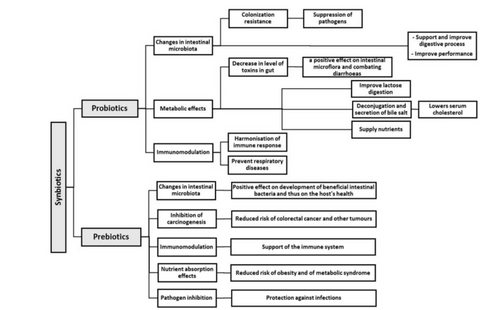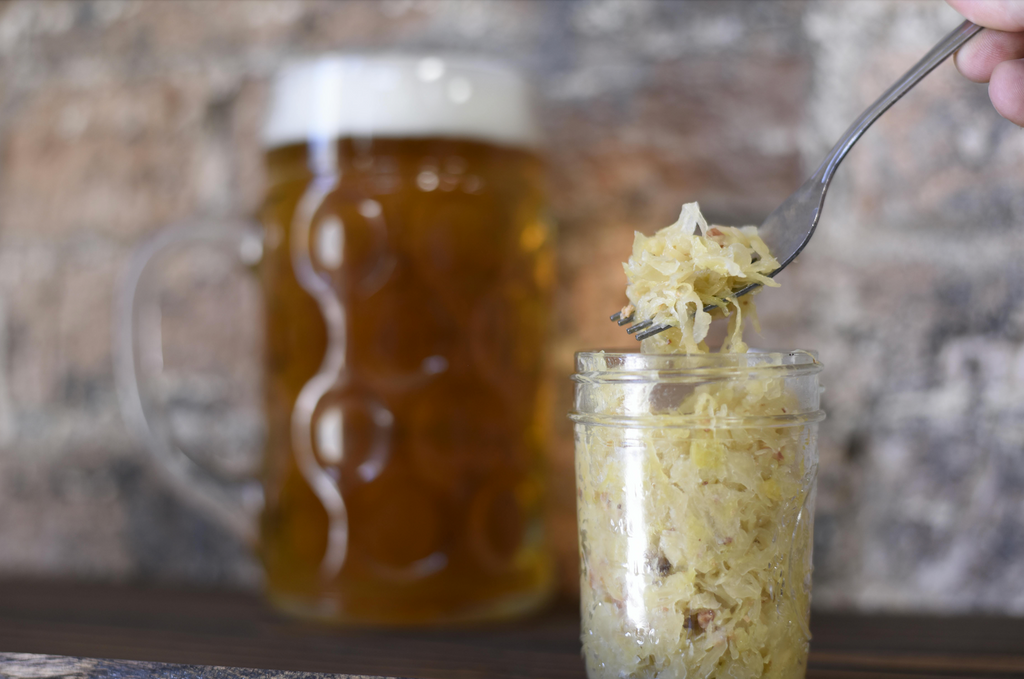We’ve purified our gut from many unnecessary and problematic bacteria. We’ve sealed our gut to make sure we have integrity in our gut lining to keep everything where it’s supposed to be. We’ve seeded our gut with probiotics by eating a wide variety of living fermented foods. Now it’s time to feed our gut.
What Are Prebiotics?
Prebiotics are defined as, “non-digestible food components that reach the intestines to be consumed by the resident probiotics, providing benefit to the host.” The probiotics in our gut feed on the prebiotics that we eat, allowing the probiotics to thrive and create gut-beneficial nutrients or post-biotics as a result. The food we eat has a direct impact on the bacteria in our gut. If we eat beneficial-bacteria food (prebiotics), we’ll foster good bacteria (probiotics). If we eat detrimental-bacteria food, we’ll foster bad bacteria that dominate and take over and cause long term problems. Eating a constant supply of prebiotics ensures that we keep our microbiome a flourishing, thriving community.
Where Can We Get Prebiotics
All fresh fruit, vegetables, grains, and nuts contain prebiotics to some degree. There are some plants known to be extra high in prebiotics such as:
- Garlic
- Artichoke
- Legumes
- Asparagus
- Chicory
- Fennel
- Onion
- Leek
- Shallot
- Nuts
- Banana
- Apple
- Cabbage
- Grains
Some people have trouble eating these extra-prebiotic plants, especially people with IBS and other inflammatory bowel diseases. The reason for this is quite possibly an unbalanced microbiome or an unsealed gut.
Are Prebiotic Powders Any Good?
It is possible to take concentrated prebiotic powders, but it’s usually better to take prebiotics through a normal diet, as a wholefood, in the form of fresh fruit and veggies. Prebiotic supplements are becoming more common, but side effects of regular prebiotic consumption include gas, bloating, and intestinal discomfort. Intestinal discomfort after taking a prebiotic supplement makes sense since our gut bacteria are hit with a sudden, intense, concentrated supply of food. The bacteria gorge themselves, creating gas and other byproducts in the process, and then the food is gone. It’s much better to take wholefoods, which feeds a small, slow, and constant supply of prebiotics to our bacteria.

The Benefits of Probiotics and Prebiotics
Synbiotic Foods
Many probiotic foods also contain prebiotics. Food containing probiotics and prebiotics is known as synbiotic food, these include:
- Sauerkraut
- Kimchi
- Miso
It’s easy to seed our gut with bacteria using sauerkraut or kimchi while feeding our bacteria with the same food.
If we’re seeding our gut with kombucha, water kefir, fermented vegetable juices (gut shots), or other foods that may not naturally contain prebiotics, it’s important to feed our gut by consuming fresh fruits, vegetables, nuts, and whole grains.
5. Maintain Your Gut
Once we’ve purified, sealed, seeded, and fed our gut, we’re in a good gastrointestinal place. Following these steps increases the number and diversity of good bacteria while minimising the opportunity for pathogenic bacteria to take hold. Our guts are more resilient. They can better deal with illness and more easily work through less-than-ideal food. When we make an unhealthy choice, or hard times are foisted upon us, our gut can bounce back more easily. A resilient gut, however, is not a permanent state of being. Life is always changing. Diet, stress, toxins, pollution, travel, and other detrimental gut effects start to slowly change our gut microbiome. Of course, minimising detrimental effects minimises change, but things happen and so often we can’t control it.
To assist in maintaining gut resilience we should continue to seal, seed, and feed our gut.
Small amounts of broth, probiotic and prebiotic foods on a daily basis will maintain our gut resilience under most circumstances. Occasionally that’s not enough, and we need to purify our gut and start the process again.
To assist with maintaining our gut it might be useful to make our own fermented veggies
Recommendations
Purify - Twice a year or after disrupting event.
A fast should last for 3 - 5 days for the best effects on the microbiome. 1 - 2 days is beneficial. 3 days seems to provide the lower side of the best effective dose. After 5 days there is limited further effect on minimising our gut bacteria unless we’re battling something quite insidious, like SIBO.
Purifying twice per year is a great baseline with additional fasts after major gut-disrupting events (End of year celebrations, returning home after travelling abroad, etc.).
Seal - 2 to 3 times per week
Drinking broth as our first “meal” after a 3 day fast, or our first 2 meals after a 5 day fast is great.
For maintenance drink broth 2 - 3 times per week. Add it to cooking or have it as an easy "breakfast".
Seed - every day
Have serve or two of low-sugar fermented foods like: sauerkraut, kimchi, miso, yoghurt, cheese, or beverages like: gut shots, kombucha, kefir etc every day to keep your gut well seeded.
Feed - every day
Every day we should feed our gut with prebiotic foods. Fermented veggies like sauerkraut and kimchi are an easy choice as they seed and feed at the same time. It's also important to have other fresh fruits. vegetables, nuts and legumes every day to much sure your gut has all it needs to keep your microbiome balanced and diverse.
To take all the hassle out you could try the specially assembled Resilient Gut Bundle to kick start your journey.




